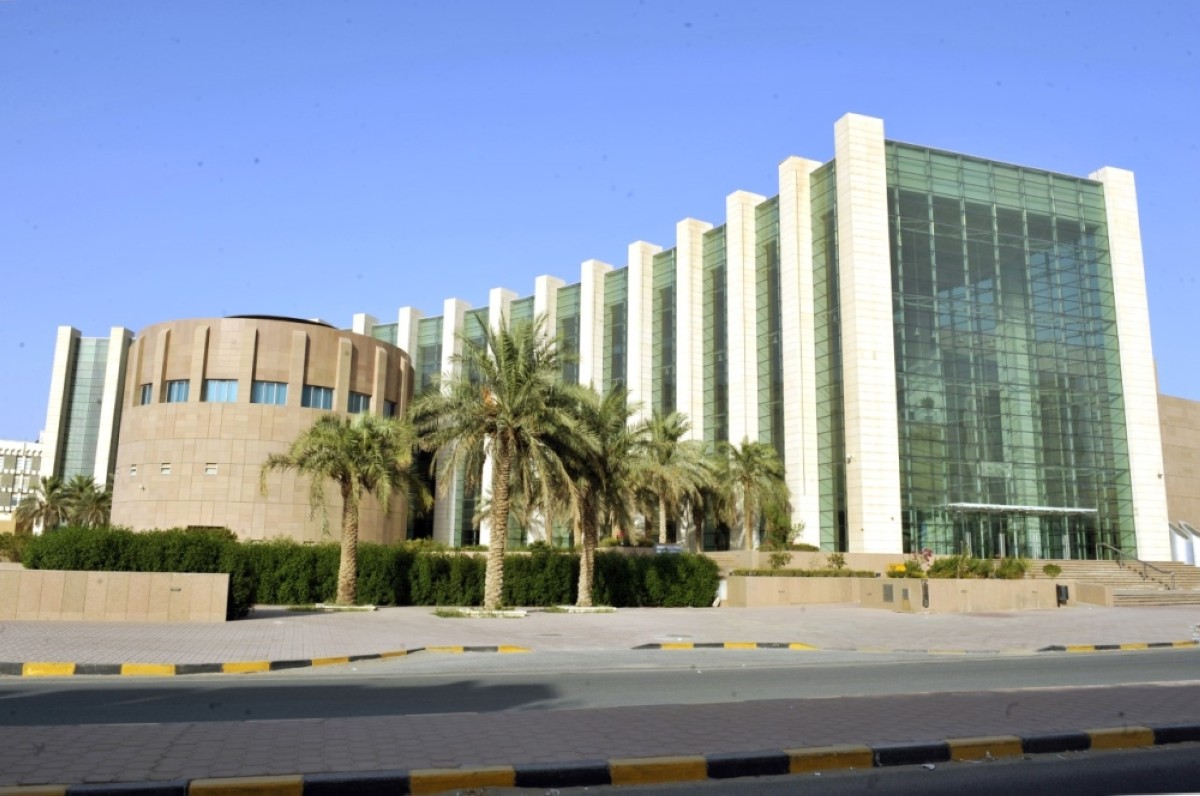KUWAIT: The idea for the National Library of Kuwait dates back to 1913, when Kuwait’s’ first public library was founded. A decade later, a group of Kuwait’s elites and intellectuals called for the establishment of a national library to house a vast collection of valuable books, manuscripts, and periodicals, growing into the intellectual vault a century later.
According to the KUNA Library, the founding fathers Abdulhameed Al-Sane and Sultan Al-Kulaib held a meeting during the reign of the late Amir Sheikh Ahmad Al-Jaber Al-Sabah with the attendance of a number of Kuwaiti intellectuals to discuss the project. They added that they designated Ibn Amer Diwaniya as the library’s headquarters, appointing Abdulhameed Al-Sane to oversee its establishment, assisted by Rajab Al-Refai (treasurer) and Abdullah Al-Omran (librarian).
A number of bibliophiles, enthralled by the notion of a privately owned library open to the public, donated a number of valuable books and agreed to supply the library with a diverse and riveting collection of magazine and newspaper issues. Speaking to KUNA, the library’s general director, Dr Sultan Al-Dehani, said: "The library went through a series of relocations and name changes in an attempt to adapt and remain standing.”
Moved by its literary and cultural significance, intellectuals kept the library alive with generous donations, giving it a home and enriching its collection with valuable donations. Nassar Bulabga, information services and cyber library department head, said: "We have five departments in the library. They include the Children Department, Special Needs Department, and General Group, among others.” "We have over 500,000 books, including books, journals, databases, and inscriptions. The library is proud to present itself as a reliable source for research,” he clarified, stating that the library always adds yearly editions and sources as well as participates in local and international book exhibitions.


The library organizes events within the National Council for Culture and Literature through an annual schedule, including events for all ages. "We also provide workshops for those interested in any literary activity. We also have publications, including guides that help researchers navigate through the library,” he added.
Shouq Hamadi, rector at the National Library of Kuwait, said: "We have thousands of books distributed in the designated halls. Kuwaitna Hall hosts books that solely talk about Kuwait, and a private hall houses books that were donated by important Kuwaiti authors.” We also have a special section for rare books, numbering around 500 books from different categories, she explained, stating that they also have an online library that people and researchers can access, including a large database done in collaboration with different international institutes.
The vision is to preserve Kuwait’s history, illuminate its present, and safeguard national memory. Due to the success of the library and its large turnout, in 1937, the government decided to rename it the Library of Public Information. For the next 40 years, the Library of Public Information carried the cultural and intellectual torches of Kuwait, receiving and preserving valuable books on all subjects ranging from Arabic literature to the sciences and history.
In 1979, the responsibility of the Library of Public Information was passed over to the National Council for Culture, Arts, and Letters, and the library was renamed the Central Library of the State. By this time, the library had grown to encompass over 50,000 books as well as over 6,000 periodicals—both Arabic and foreign languages—in addition to a large number of rare manuscripts.
In 1994, by Amiri Decree, the library was renamed and established as the National Library of Kuwait, with the following main objectives:
To compile, organize, document, and preserve Kuwaiti heritage and national intellectual production and property.
To develop and collect all literature and information concerning Kuwait, its history, the history of the Gulf, and the Arabian Peninsula in both Arabic and foreign languages.
To maintain and protect the rights of authors, inventors, and owners of artistic works, as well as intellectual property rights.
To act as the national center for integration within the Unified National Index.
To upgrade the performance.
To coordinate and cooperate with national libraries, research centers, public and special libraries, and concerned unions for the promotion and common development of library studies and for the enrichment of library collections and technical systems.
